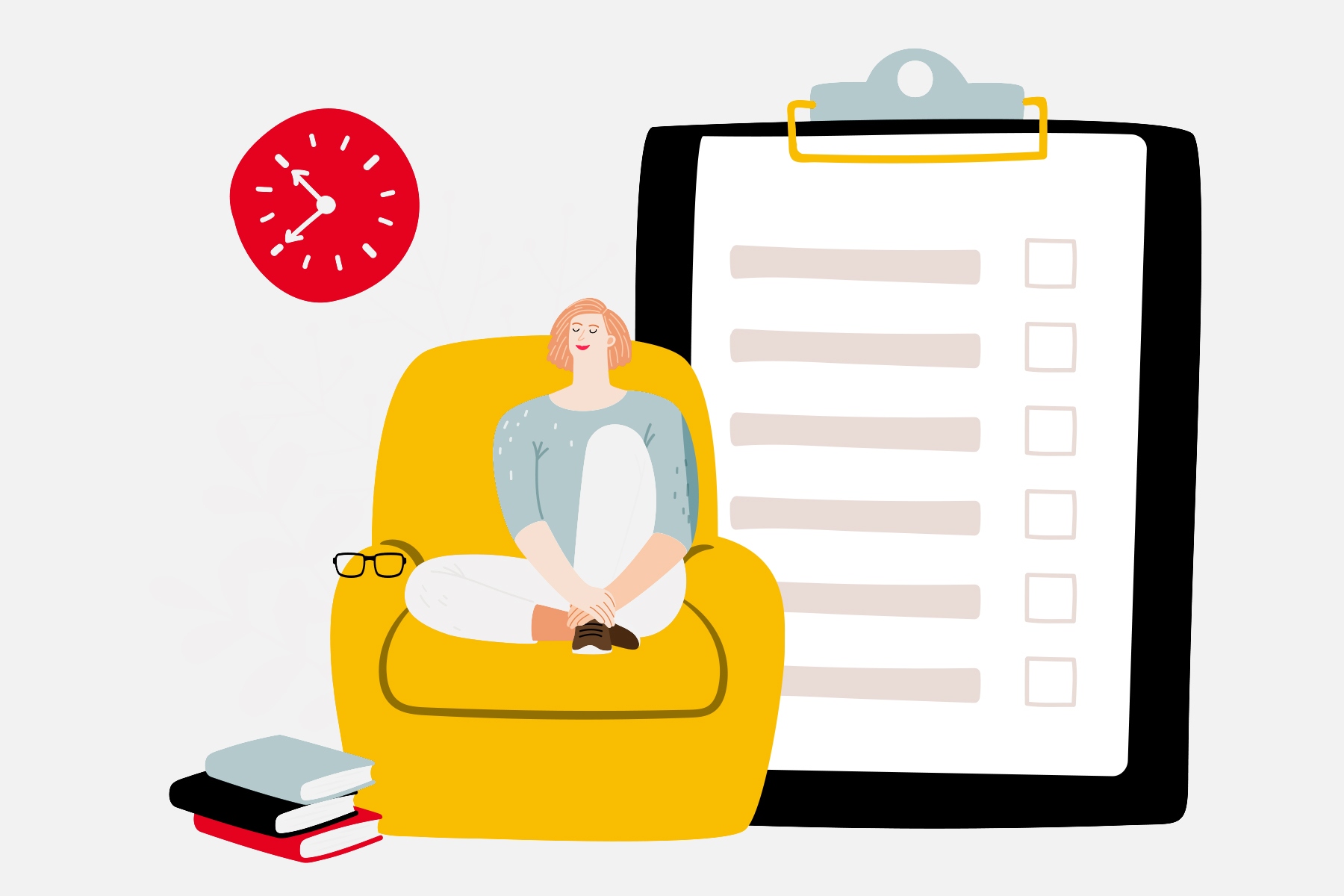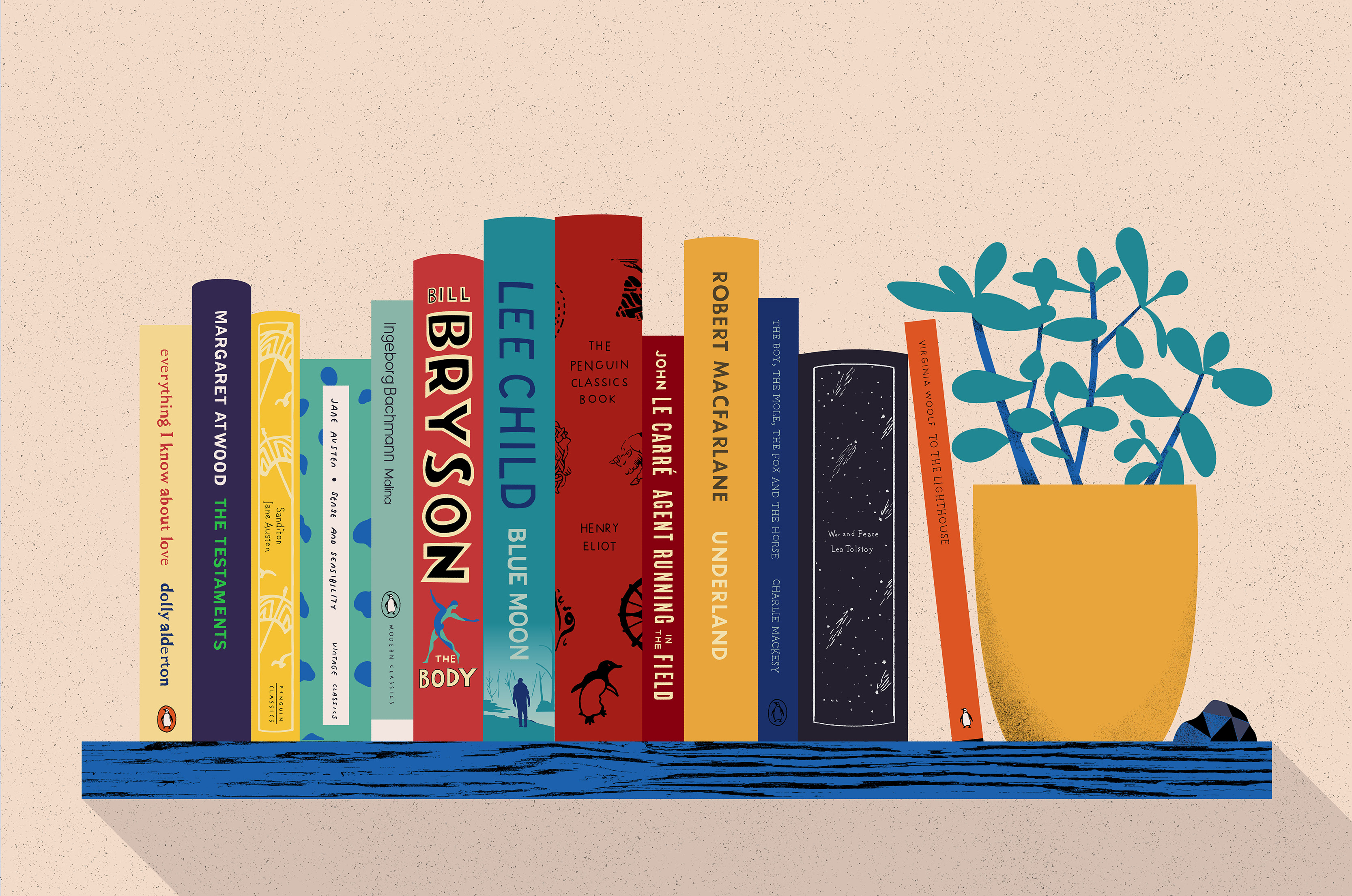
- Home |
- Search Results |
- 5 ways to remember everything you’ve ever read
How many books do you read in a year? In a month? A week!? The mere fact that you're on this website means you're probably a voracious reader. But does trying to remember all the books you've read ever feel overwhelming?
We've all been at a dinner party or out with friends when the conversation turns to a book you almost-definitely think you've read but can't recall a thing about. Did you actually read it, or have you just heard so much about it that it feels as if you have?
“Of Mice and Men?” you deflect, desperately trying to think of something smart to say, “Um... yeah, no, I read it a very long time ago. I don't remember it much.” And from there the conversation bolts, leaving you to curse your hippocampus for its treachery.
But this never needs to happen again. Here are a few ways to keep track of what you read to – at the very least – avoid those awkward moments of book amnesia.
Create a virtual bookshelf through an app

You risk falling down a real bookworm-hole, here. But boy is it worth it if you ever need to remember a book on the hoof. There are lots of virtual bookshelf apps out there. And here's the best bit: you can carry them around with you everywhere you go on the off chance someone asks you if you've read Of Mice and Men.
Goodreads is, of course, the most famous. Its app allows users to track the books they're reading, have read and want to read. You can also rate books and recommend them, as well as receive recommendations based on what you've already read, and share your own with friends.
As well as keeping track of your reading, The Story Graph offers a full dashboard of charts and graphs to breakdown your reading habits. And for readers wanting to discover their next read there is a handy filter which allows you to find books based on your mood.
Libib is another. It does much of what Goodreads offers and more. You can catalogue your entire library of physical books by simply scanning the barcode of each book. It's all stored on a cloud, and can be categorised in any order you choose (alphabetical, chronological etc).
Other similar apps worth checking out are Delicious Library 3, Library Thing, and Book Crawler.
Keep a reading journal
This is the most basic way to remember what you've read and when. It's as simple as buying a notebook (there are some lovely ones in the Penguin Shop), dusting down a biro and writing down (assuming you can still remember how in The Age of Inkless Communication) the title, author, date you read it and an impression or two about the book itself.
Indeed, if your penmanship is has gone down the same chute as your landline telephone and hard-copy newspaper, an Excel spreadsheet does just as fine a job. Though, that does remove the option of doodling what you think characters might look like in the margins, of course.
True bibliophiles may want to add an extra dimension to their cataloguing process here too, by including a star-rating system or a handful of nostalgia tidbits about where they read the book and how it made them feel.
Create a new physical bookshelf only for books you've read

So, you've got a lot of books. You collect books like a magpie and you've got the shelves to prove it. But how many of them have you actually read?
French author George Perec once wrote: “If you do not keep on sorting your books, your books unsort themselves.” You could say the same about your mind. And what is more frustrating than getting lost in your own bookshelf in search of a book you're sure you own?
This is the old-school method of keeping track of your book collection, but probably also the most rewarding. Just split your shelves into two sections: the books you've read, and the ones you haven't. You could even add an extra shelf for the books you'd like to read again.
And here's where the fun starts. There are many ways to organise your shelves from there, from chronological to alphabetical, genre to how a book made you feel inside. Of course, how you organise your bookshelf can say a lot about your personality, and we have plenty of tips to get you started and embrace your inner bookworm.
Create a wishlist with your favourite retailer
Many of the major book retailers, and some independents, allow members to create wishlists on their websites. Waterstones, for example, has a section where members (it's free to join) can create wishlists of books they'd like to read that can be categorised by genre and sub-genre.
You can click through to buy, and leave comments beneath each entry to remind you what you thought of the book, when you read it, and where. You can also share your lists with friends, as well as put them out for the world to see and comment on.
Join a book club

If all this sounds like a faff too far, why not just let other people do the heavy lifting for you? Just join a book club. So long as you're not the organiser (in which case, all the above methods will come in handy), the book club approach allows you to sit back and relax, safe in the knowledge that someone else is keeping track of the books you're reading. Now all you need to do is read.
And if you're the conscientious kind of book clubber, you'll be taking notes ahead of each discussion anyway, which you can file in a journal or a book folder saved on your computer.
The other plus here, of course, is that the mere act of discussing a book with a group will ensconce its contents deeper into your memory (depending, obviously, on how many glasses of wine you knock back in the process. In which case, it might be best to return to the beginning of this article).
What did you think of this article? Let us know by emailing editor@penguin.co.uk.
Image: istock